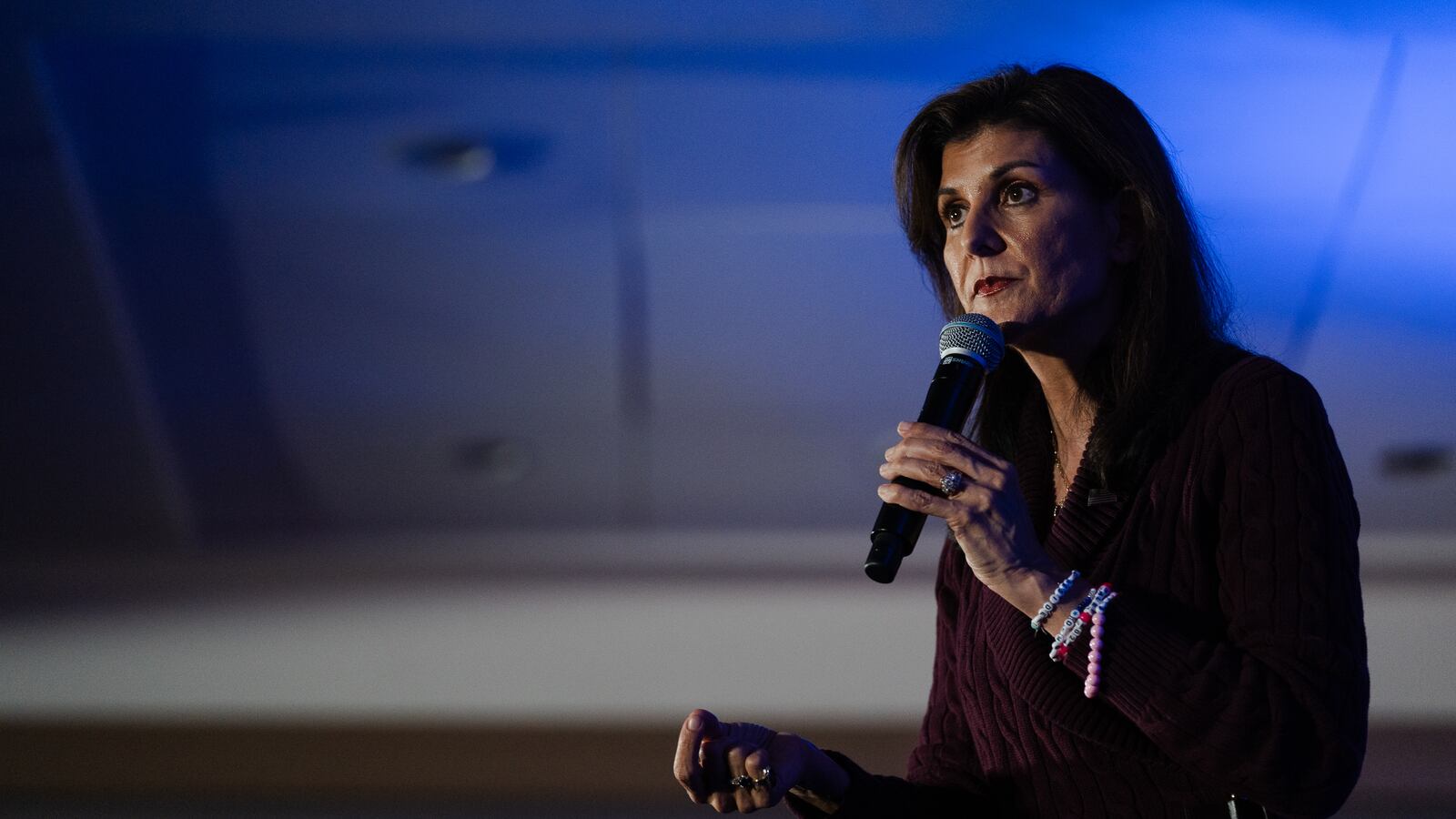Nikki Haley pledged in August to support the eventual Republican presidential nominee. But with Donald Trump poised to take that mantle, she’s much less committed to that vow.
“The [Republican National Committee] pledge—I mean, at the time of the debate, we had to take it to where, ‘Would you support the nominee,’ and in order to get on that debate stage, you said yes,” she told Meet the Press in an interview that aired on Sunday. “The RNC is now not the same RNC.”
“So, you’re no longer bound by that pledge?” moderator Kristen Welker said.
“No, I think I'll make what decision I want to make,” Haley said. “But that’s not something I'm thinking about.”
The RNC demanded last year that Republican presidential candidates pledge to support the eventual nominee in order to appear on the first debate stage, a proposal that rankled the then-sprawling candidate field. Haley was an avid supporter of the RNC move, chiding candidates like Trump and Florida Gov. Ron DeSantis for not immediately signing the pledge. (DeSantis eventually signed it, while Trump never did.)
“Absolutely irresponsible that Trump, DeSantis, and others won't commit 100% to supporting the Republican nominee. There’s no room for personal vendettas in this battle to save our country,” Haley wrote in an X post in June. “Any Republican would be better than a President Kamala Harris.”
But Sunday’s reversal comes ahead of Super Tuesday, where 15 states and one U.S. territory will vote and where Trump will presumably continue to glide his way towards clinching the Republican nomination. Haley has lost every state, including her home state of South Carolina—but that has not stopped her from pushing forward.
“I think that while you all think about that,” she told Welker, “I’m looking at the fact that we had thousands of people in Virginia, we’re headed to North Carolina, we’re going to continue to go to Vermont, and Maine, and all these states to go and show people that there is a path forward. And so, I don’t look at ‘what if’. I look at, ‘How do we continue the conversation?’”






